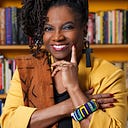CURRENT COLLEGE CAMPUS PROTESTS FOR JUSTICE AND THE NEED FOR REPARATIONS IN THE U.S.
by Nkechi Taifa, Esq.
Today’s wave of protests and encampments on college campuses across the United States against Israel’s military devastations in Gaza is sparking a renewed conversation about the intersectionality of social justice movements in general, and the need for reparations for Black people in the U.S. As students across campuses raise their fists and voices in solidarity with Palestinians facing repression, we must recognize and uplift the interconnectedness of struggles for justice and liberation, at home and abroad.
In recent weeks, college campuses have become hotbeds of activism and protest, with students mobilizing in solidarity with Palestinians amidst the escalating violence and oppression in Gaza, which also includes Jewish voices advocating for peace, justice, and human rights for all parties involved.
Simultaneously, discussions about reparations for Black people, long overdue in the national discourse, have gained momentum, fueled by a growing recognition of historical injustices and systemic racism. The nexus between these two critical issues highlight the parallels between the struggle for Palestinian rights and the fight for reparations for Black people in the U.S.
The protests on college campuses against Israel’s actions in Gaza stem from a deep-seated concern for human rights and social justice. As the world witnesses the devastating impact of violence and displacement on Palestinian communities, students are standing in solidarity with the oppressed, demanding an end to the occupation and the blockade of Gaza. These protests must not be isolated incidents but part of broader movements that challenge injustice and call for accountability.
The quest for reparations for Black people in the U.S. is rooted in centuries of enslavement, Jim Crow/apartheid, and systemic discrimination. The lingering impacts of enslavement continue to shape the current socio-economic landscape, with Black communities disproportionately affected by poverty, violence, and lack of access to opportunities. Efforts to address this legacy through reparations have been met with backlash and resistance, but momentum is building as more people recognize the need for acknowledgment, restitution, and repair.
The struggle for Palestinian rights and the fight for Black liberation are inherently connected by shared experiences of oppression and resistance. Both peoples have endured centuries of discrimination, dispossession, and violence, yet they have also demonstrated resistance, resilience, and a commitment to justice. By recognizing these shared experiences and building solidarity between movements, activists can amplify voices and strengthen impact.
College campuses play a crucial role in shaping public discourse and driving social change. Indeed, students have historically been at the forefront of movements for justice, using their voices and platforms to advocate for meaningful reform. Today’s campus demonstrations are reminiscent of past movements such as the anti-apartheid protests that shook South Africa and the world over 30 years ago — boycotting, and advocating for divestment and sanctions, in the face of arrests and backlash.
The issue of reparations re-emerges today as a crucial component of justice and reconciliation. Recognizing historical and current injustices are imperative in fostering healing and repair. Indeed, reparations is a vehicle for transformative change and, arguably, is the only policy that comprehensively addresses the very crux of institutional and structural racism and inequity — the harms from government and related policies of the enslavement era that still manifest today in nearly every area of life from health, wealth and educational inequities to cultural deprivations and mass incarceration.
We must recognize that the protests on college campuses nationwide against Israel’s actions in Gaza and the demand for reparations for Black people in the United States are not isolated events. They are interconnected struggles, highlighting the need for solidarity and collective action. By recognizing the intersectionality of social justice movements — voting, climate, reproductive, LGBTQ, mass incarceration and abolition, to name a few, we can build a more inclusive and equitable world for all.
Now, more than ever, the need to educate and mobilize around reparatory justice is paramount. And by connecting historical struggles to contemporary injustices, we can build momentum as we strive for transformational change across all issue areas.
###
Nkechi Taifa is an attorney, author and Executive Director of the Reparation Education Project, Inc.
